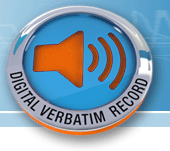 |
 |
|
|
|
|
|
|
|
|
||||
 |
|
||||||||||||
|
|
|
|
|
|
|||||||||
|
|
|
||||||||||||
|
|
|
||||||||||||
|
The Sixty-fourth
World Health Assembly was held at the Palais des Nations, Geneva,
from 16 to 24 May 2011, in accordance with the decision of the
Executive Board at its 127th session.1 The theme
for the general discussion in plenary meetings was “The prevention
and control of noncommunicable diseases”.2
Outgoing Vice-President of the Sixty-third World Health Assembly:
Dr M.I. Rodríguez (El Salvador) President of the Sixty-fourth World Health Assembly:
Dr Christos Patsalides (Cyprus) Vice-Presidents: Professor C.O. Onyebuchi Chukwu (Nigeria) Mr Ri Jang Gon (Democratic People’s Republic of Korea) Dr Enrique T. Ona (Philippines) Dr Mohammad Hussein Nicknam (Islamic Republic of Iran) Mrs Therese Baptiste-Cornelis (Trinidad and Tobago)
The verbatim record contains the
record of proceedings during the 10 plenary meetings of the Health
Assembly. The digital recording of the meetings includes the
interventions made by each speaker, in the original language of
delivery.
1 Decision
EB127(9)
(2010). |
|
||||||||||||
| . | |||||||||||||
|
|
|
|
|
|
|
|
|
|
|
|
|
|
|